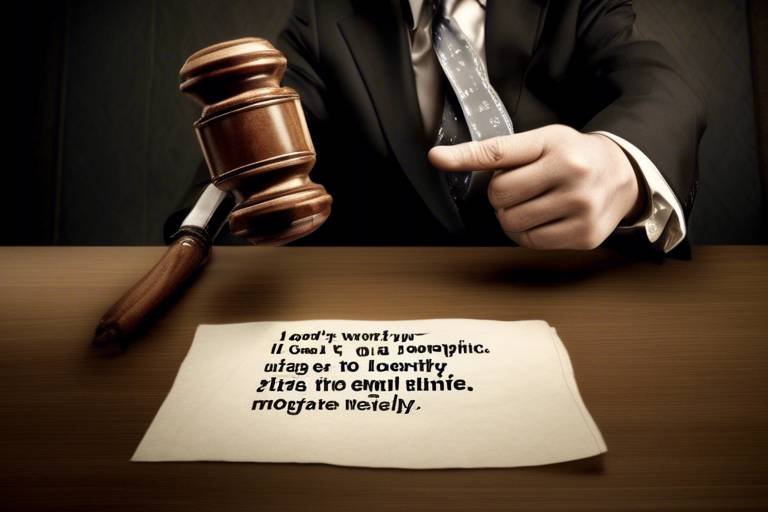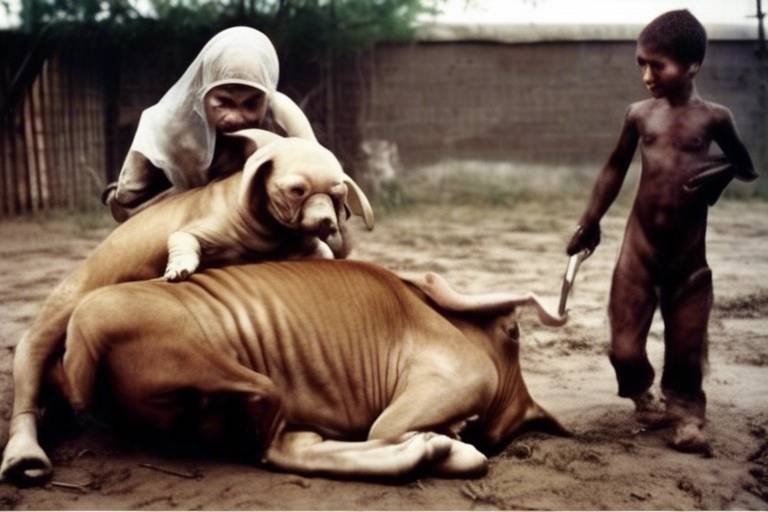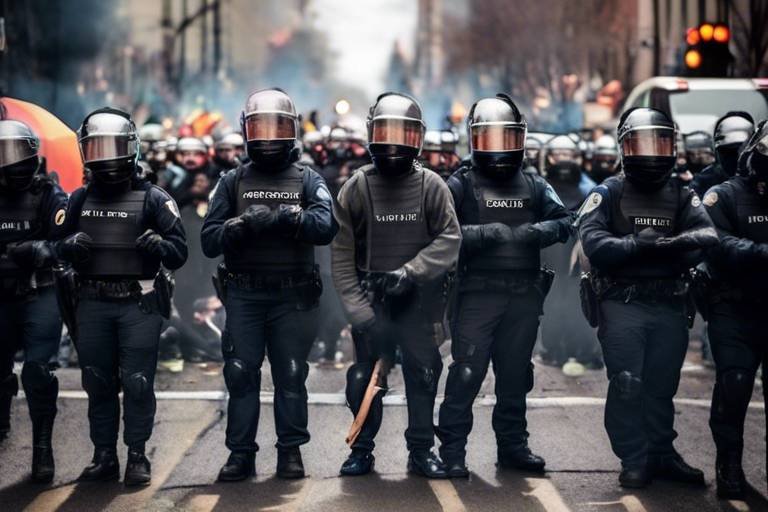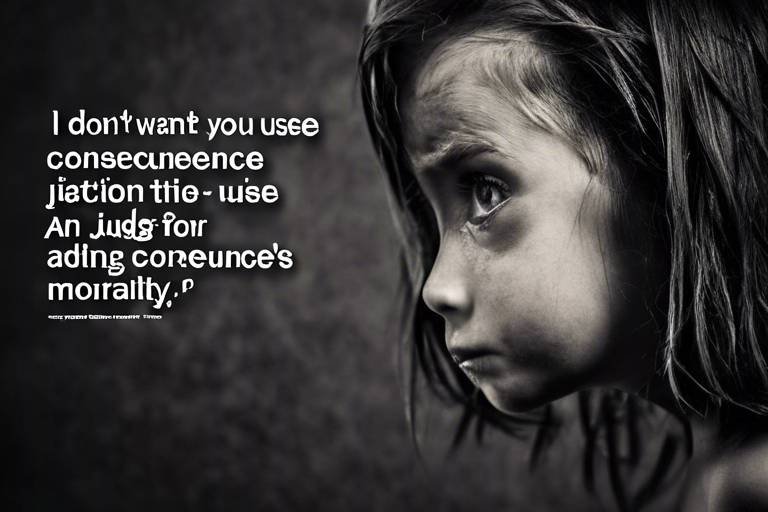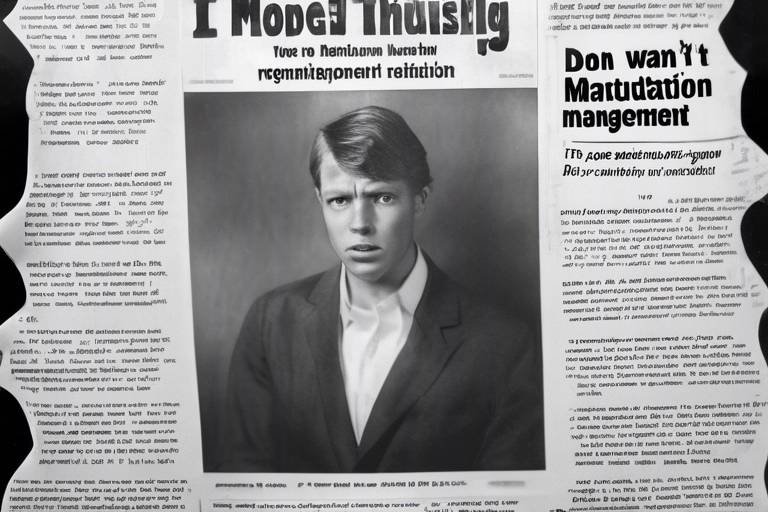Are There Any Ethics in Stand-up Comedy?
Stand-up comedy is often seen as a realm where anything goes—a stage where comedians can unleash their thoughts, opinions, and humor without fear of backlash. But is that really the case? Are there ethics in stand-up comedy, or is it a free-for-all where the only rule is to make people laugh? As we dive into this topic, it's essential to recognize that humor is not just a tool for entertainment; it reflects our societal values and the complex issues we face. This exploration will peel back the layers of stand-up comedy, revealing the delicate balance between humor and sensitivity, the responsibilities comedians hold, and the profound impact their jokes can have on society.
At its core, humor serves as a mirror to society, often challenging norms and provoking thought. Comedians have a unique ability to tackle serious subjects, making them accessible and digestible through laughter. Think of comedy as a social commentary—it can break down barriers and create dialogue around topics that might otherwise remain unspoken. However, with this power comes responsibility. Comedians must navigate the tricky waters of sensitive subjects, ensuring their material does not perpetuate harm or reinforce negative stereotypes. The question arises: where should they draw the line?
Understanding the boundaries of comedy is crucial in this discussion. Comedians often grapple with the challenge of being edgy while remaining considerate. They need to strike a balance between pushing the envelope and being mindful of their audience's feelings. This leads us to consider the impact of offensive jokes. While some may argue that humor should be free from restrictions, others point out that jokes can perpetuate harmful stereotypes and marginalize certain groups. The consequences of such humor can be profound, affecting not only the individuals targeted but also the broader societal perceptions. Comedians must recognize their role in shaping these narratives.
Humor serves as a reflection of societal values and issues. This section discusses how stand-up comedy can challenge norms, provoke thought, and create dialogue around important topics.
Understanding the boundaries of comedy is crucial. This section explores where comedians draw the line in their material and how they navigate sensitive subjects without crossing ethical boundaries.
Offensive jokes can perpetuate stereotypes and harm marginalized groups. This subheading analyzes the consequences of such humor and the responsibilities comedians have to their audience.
Audience reactions can provide insight into the acceptability of certain jokes. This part examines how different demographics respond to humor and the implications for comedians.
Many comedians practice self-regulation to avoid crossing ethical lines. This section discusses the internal guidelines comedians set for themselves and how they evolve over time.
The debate between freedom of speech and ethical responsibility is ongoing. This subheading explores how comedians balance their right to express themselves with the potential harm their words may cause.
Ethics in stand-up comedy have evolved significantly over the years. This section traces the historical changes in comedic standards and societal expectations.
Social media has transformed how comedians share their work. This part discusses the impact of online platforms on comedic expression and the increased scrutiny comedians face.
Examining case studies of controversial comedians provides valuable insights. This section highlights notable examples and the public's response to their ethical dilemmas in comedy.
- What defines ethical comedy? Ethical comedy is characterized by a comedian's awareness of the potential impact of their jokes, ensuring they do not perpetuate harm or reinforce stereotypes.
- Can comedians joke about any topic? While comedians can technically joke about any topic, the acceptability of such jokes often depends on context, audience, and delivery.
- How do audience demographics influence comedy? Different demographics may respond variably to humor based on cultural background, personal experiences, and societal values, shaping what is deemed acceptable.
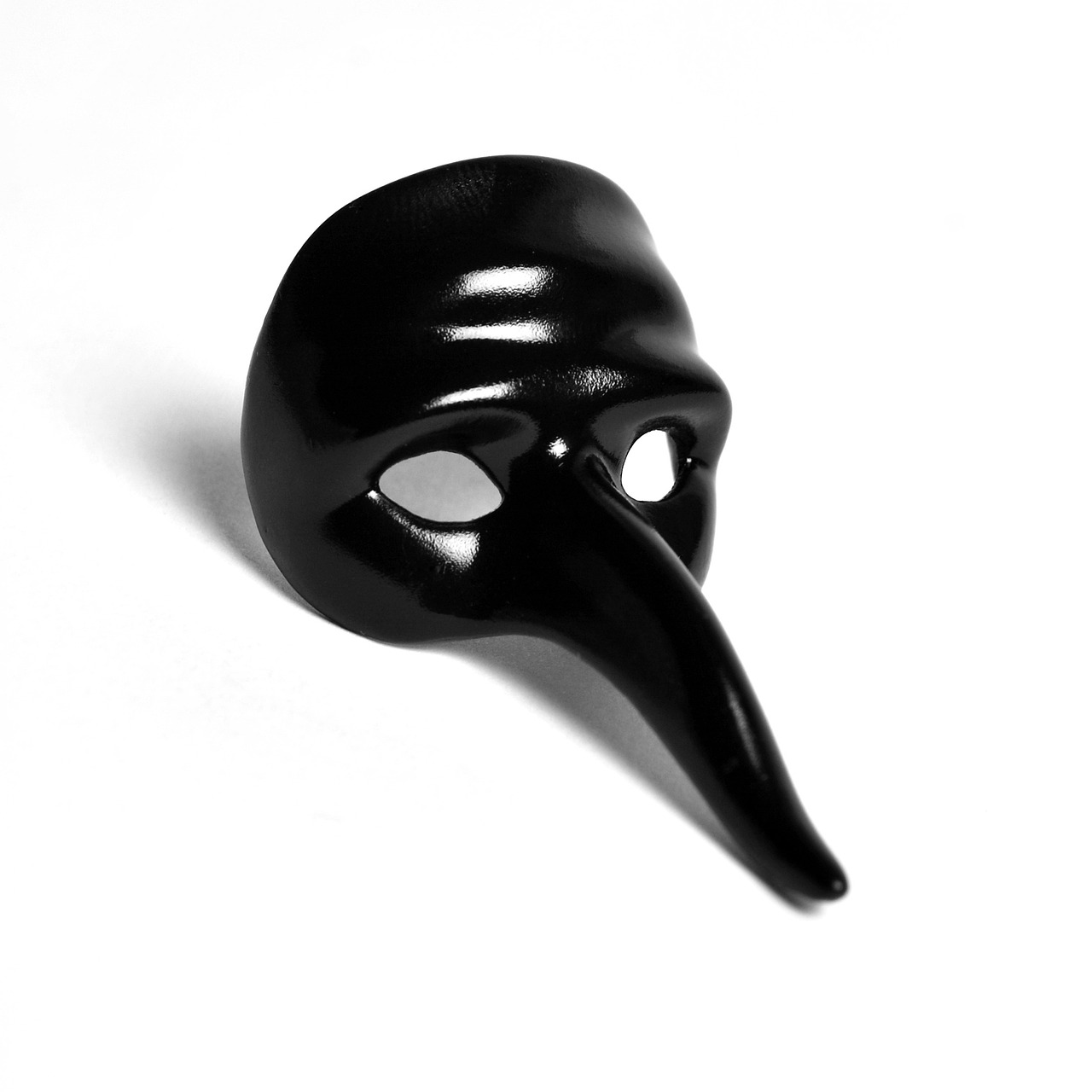
The Role of Humor in Society
Humor is more than just a source of laughter; it acts as a mirror reflecting societal values, beliefs, and issues. Think about it: when comedians take the stage, they often shine a light on taboo topics or social injustices that many might shy away from discussing. In this way, stand-up comedy can serve as a powerful tool for social commentary, challenging norms and provoking thought. It’s like holding a magnifying glass to the absurdities of life, allowing us to see the world from a different perspective.
Take a moment to consider how often you’ve laughed at a joke that also made you think. Comedians have a unique ability to weave humor into narratives that tackle serious issues such as racism, sexism, and politics. By doing so, they create a space where audiences can engage in dialogue about difficult subjects. For instance, a well-crafted joke about a controversial topic can break down barriers, making it easier for people to discuss their feelings and opinions on that issue. This is where the magic of comedy lies—its ability to transform discomfort into understanding.
However, humor is a double-edged sword. While it can inspire change and foster connection, it can also perpetuate harmful stereotypes and alienate marginalized groups. Comedians must navigate this tricky landscape with care, as the line between funny and offensive can be razor-thin. A joke that resonates with one audience might fall flat or even offend another. This variability is what makes comedy so fascinating yet complex. It’s a dance of sorts, where comedians must be attuned to their audience's sensibilities while expressing their own unique voice.
In today’s world, where social media amplifies every word spoken, the role of humor is even more pronounced. Comedians are no longer just performers on a stage; they are now influencers who can reach millions with a single tweet or video. This newfound power comes with increased scrutiny and responsibility. As they share their work online, they must consider how their humor impacts their audience and society at large. The stakes are higher, and the potential for backlash is real, leading many comedians to rethink their material and approach.
Ultimately, the role of humor in society is to spark conversation and challenge the status quo. It encourages us to laugh at ourselves and the world around us while also prompting us to reflect on our values and beliefs. As we navigate the complexities of modern life, humor remains a vital part of our cultural fabric. It’s a reminder that even in the face of adversity, we can find reasons to smile, connect, and grow together.

Boundaries of Comedy
When it comes to stand-up comedy, the boundaries can often feel like a tightrope walk. Comedians are tasked with the challenge of making people laugh while navigating a landscape filled with sensitive topics and societal norms. The question arises: where do we draw the line? Is there a point where humor becomes harmful, or is it all just part of the game? Understanding these boundaries is crucial for both comedians and audiences alike.
Comedians often find themselves in a delicate dance, balancing the need for authenticity in their material with the potential repercussions of their words. Many comedians will tell you that their job is to push boundaries, to poke fun at societal norms, and to challenge the status quo. However, this doesn’t mean they can say whatever comes to mind without considering the implications. The responsibility lies heavily on their shoulders, as they must gauge not only their own intentions but also how their jokes might resonate with diverse audiences.
One way comedians navigate these tricky waters is by establishing their own set of personal guidelines. These guidelines can vary widely from one comedian to another, shaped by their backgrounds, experiences, and the communities they engage with. For example, some comedians may feel comfortable discussing topics like race or mental health, while others might steer clear of these subjects entirely. This self-regulation often comes from a place of respect for their audience and an understanding of the potential harm that can arise from careless humor.
Moreover, the context in which a joke is delivered plays a significant role in its reception. A joke that might be acceptable in a late-night comedy club could be deemed inappropriate in a corporate setting. Comedians must be acutely aware of their audience and the environment, adjusting their material accordingly. This adaptability is not just a skill but a necessity in the ever-evolving landscape of comedy.
Additionally, comedians often rely on feedback from their audiences to gauge the acceptability of their material. Audience reactions can be a powerful indicator of whether a joke lands or falls flat. In some cases, a joke that prompts laughter from one demographic might elicit discomfort or even anger from another. This discrepancy highlights the importance of understanding the audience's perspective and being mindful of the diverse backgrounds and experiences that shape their responses.
In the end, the boundaries of comedy are not set in stone. They are fluid, shifting with societal changes and the evolving consciousness of what is considered acceptable. As comedians continue to explore the depths of humor, they must remain vigilant, recognizing the weight of their words and the impact they can have on individuals and communities.

Offensive Jokes and Their Impact
Offensive jokes can be a double-edged sword. On one hand, they can elicit laughter and provide a sense of relief from the pressures of everyday life. On the other hand, they can perpetuate harmful stereotypes and marginalize already vulnerable groups. It's like walking a tightrope; one misstep can lead to a fall that affects not just the comedian, but also the audience and society at large. When comedians choose to make jokes that touch on sensitive subjects, they must grapple with the potential consequences of their words.
Consider this: humor often serves as a mirror reflecting societal values and norms. However, when that mirror distorts reality, it can reinforce negative perceptions. For instance, jokes that trivialize serious issues such as race, gender, or disability can contribute to a culture of insensitivity, making it easier for prejudice to thrive. While some may argue that comedy is a space for free expression, the reality is that words have power. They can shape opinions, influence behaviors, and even incite violence. This is why comedians must tread carefully, ensuring that their humor does not come at the expense of those who are already marginalized.
Moreover, the impact of offensive jokes extends beyond the immediate laughter they may generate. Research has shown that repeated exposure to negative portrayals in comedy can desensitize audiences to real-life issues. For example, if a comedian routinely makes jokes about a particular ethnic group, it can lead to the normalization of stereotypes, making it easier for discriminatory attitudes to take root. This is particularly concerning in today's society, where the lines between comedy and reality are increasingly blurred.
To illustrate the point, let’s take a look at some statistics that highlight the effects of offensive humor:
| Type of Humor | Percentage of Audience Finding It Offensive |
|---|---|
| Racial Jokes | 75% |
| Gender-Based Jokes | 65% |
| Disability Jokes | 80% |
As seen in the table, a significant portion of the audience finds certain types of jokes offensive. This highlights the comedian's responsibility to consider their material carefully. The challenge lies in balancing the desire to push boundaries with the need to respect the dignity of all individuals. Ultimately, comedians have a choice: they can either use their platform to uplift and challenge societal norms or contribute to a culture of insensitivity and division.
In conclusion, while the allure of offensive humor may be strong, the consequences are far-reaching. Comedians must recognize that their jokes can have lasting impacts, shaping perceptions and attitudes in ways they may not fully understand. The responsibility lies not only in making people laugh but also in fostering a more inclusive and understanding society. So, the next time you hear a joke that makes you chuckle, take a moment to reflect on its broader implications. After all, laughter should unite us, not divide us.
- What defines an offensive joke? An offensive joke is one that targets specific groups or individuals in a way that perpetuates stereotypes or promotes discrimination.
- How can comedians know if their material is offensive? Comedians can seek feedback from diverse audiences, stay informed about social issues, and reflect on the potential impact of their jokes.
- Is it possible for offensive jokes to be funny? While some may find them humorous, the context and impact of the joke are crucial in determining its acceptability.
- What should comedians do if they realize their joke is offensive? Comedians should acknowledge the harm caused, apologize, and consider revising their material to be more inclusive.
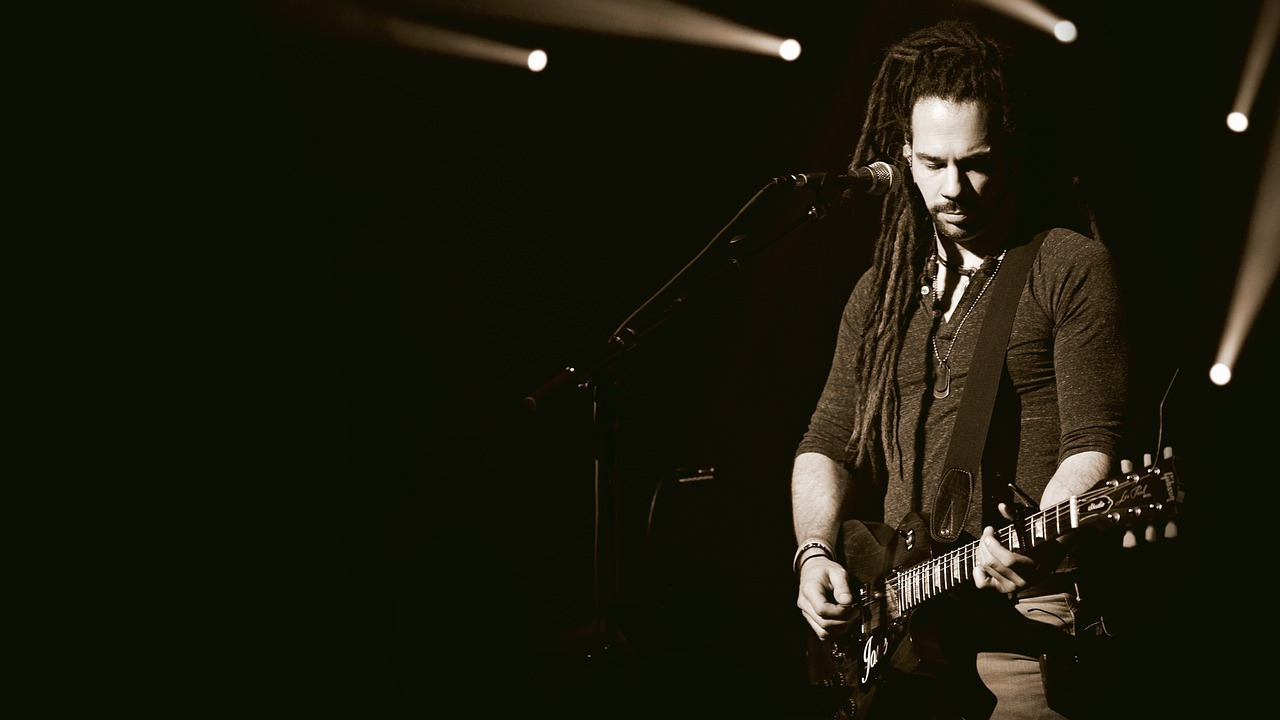
Audience Reactions
When it comes to stand-up comedy, audience reactions are like the pulse of the performance. They provide immediate feedback, reflecting not just personal taste but also broader societal norms and values. Imagine a comedian on stage, delivering a punchline that sends waves of laughter rolling through the crowd. On the flip side, picture a joke that falls flat, met with awkward silence or even gasps. These reactions can be telling, revealing what is acceptable within a particular context and what crosses the line into discomfort or offense.
Different demographics react differently to humor, influenced by factors such as age, cultural background, and personal experiences. For instance, a younger audience might be more receptive to edgy jokes that challenge societal norms, while older generations might prefer humor that aligns more closely with traditional values. This divergence can create a complex landscape for comedians, who must navigate the minefield of audience expectations.
Consider the following points regarding audience reactions:
- Context Matters: A joke that is hilarious at a late-night comedy club might not translate well to a family-friendly event. Comedians often tailor their material based on the expected audience.
- Shared Experiences: Humor often draws from shared experiences. When comedians tap into common cultural references, they can foster a sense of community, making the audience feel included.
- Emotional Triggers: Certain topics can evoke strong emotional reactions. Comedians must be aware of sensitive subjects that may hit too close to home for some audience members.
The interplay between a comedian and their audience can be dynamic and unpredictable. Sometimes, a joke that is intended to provoke thought can lead to heated discussions, both during and after the performance. This interaction can serve as a catalyst for dialogue, pushing the boundaries of what is considered acceptable in humor. Comedians often find themselves in a position where they must read the room, adjusting their act based on the audience's response.
Moreover, the rise of social media has amplified these reactions, allowing audiences to share their opinions instantaneously. A single tweet or post can turn a joke into a viral sensation or ignite a controversy that follows a comedian long after the show is over. This immediate feedback loop has made comedians more aware of their impact, as they navigate the delicate balance between pushing boundaries and respecting sensitivities.
In conclusion, understanding audience reactions is crucial for comedians. It not only informs their material but also shapes the cultural landscape of comedy itself. As they strive to entertain while provoking thought, comedians must remain attuned to the pulse of their audience, ensuring that their humor resonates without alienating. After all, the goal of comedy is to bring people together, not to drive them apart.
- What is the role of audience reactions in stand-up comedy? Audience reactions provide immediate feedback and can influence a comedian's performance, shaping the comedic narrative.
- How do different demographics affect humor perception? Different age groups and cultural backgrounds can lead to varying interpretations of humor, affecting how jokes are received.
- Why is context important in comedy? The context in which a joke is delivered can determine its acceptability, as some material may be suitable for specific environments but not others.
- How has social media changed audience reactions? Social media allows audiences to share their reactions instantly, impacting a comedian's reputation and the public discourse surrounding their material.

Self-Regulation in Comedy
When it comes to the world of stand-up comedy, the concept of self-regulation is as vital as the punchlines themselves. Comedians often find themselves walking a tightrope, balancing the need to entertain with the responsibility of not crossing ethical lines. This self-imposed discipline can be likened to a moral compass, guiding comedians through the murky waters of sensitive topics. Many comedians develop personal guidelines that help them decide what is acceptable material and what might be too far. This internal navigation is essential, especially in an era where the audience's perception can shift rapidly.
Self-regulation in comedy isn't just about avoiding backlash; it's also about fostering a healthy environment for humor. Comedians often engage in self-reflection, asking themselves questions like: "Will this joke hurt someone?" or "Am I perpetuating a stereotype?" This introspection can lead to a more thoughtful approach to their material. For example, a comedian might choose to tackle a controversial subject but do so in a way that encourages dialogue rather than division. This approach not only showcases their comedic talent but also demonstrates a commitment to social responsibility.
Moreover, the evolution of comedy has seen comedians adapting their styles and content in response to audience feedback. In today's digital age, where social media platforms amplify voices, comedians are more aware than ever of the impact their words can have. They often gauge audience reactions, refining their material based on what resonates positively and what doesn't. This dynamic interaction creates a feedback loop that fosters growth and responsibility in comedic expression.
To illustrate the concept of self-regulation in comedy, consider the following table that outlines some common practices comedians employ to maintain ethical standards:
| Practice | Description |
|---|---|
| Audience Awareness | Understanding the demographics and sensitivities of the audience to tailor material accordingly. |
| Feedback Incorporation | Using audience reactions and feedback to refine and adjust jokes for future performances. |
| Peer Review | Collaborating with fellow comedians to critique and discuss the ethical implications of certain material. |
| Personal Reflection | Taking time to reflect on the potential impact of their jokes on various communities and individuals. |
In conclusion, self-regulation in comedy is a nuanced practice that requires comedians to be both creatively free and ethically responsible. As the landscape of comedy continues to evolve, those who can navigate these waters with skill and sensitivity will not only thrive but also contribute positively to the comedic narrative. It's about finding that sweet spot where laughter meets understanding, ultimately enriching the comedy experience for everyone involved.
- What is self-regulation in comedy? Self-regulation in comedy refers to the internal guidelines comedians set for themselves to navigate sensitive topics and maintain ethical standards in their material.
- Why is self-regulation important for comedians? It helps comedians avoid crossing ethical lines, fosters a healthy environment for humor, and promotes social responsibility.
- How do comedians gauge audience reactions? Comedians often pay attention to laughter, applause, and even silence during performances to understand how their material is received.
- Can self-regulation change over time? Yes, as societal norms and audience expectations evolve, comedians may adjust their self-regulation practices to stay relevant and respectful.

Freedom of Speech vs. Ethical Responsibility
In the world of stand-up comedy, the tension between freedom of speech and ethical responsibility is a hot topic that sparks endless debate. Comedians often find themselves walking a tightrope, balancing their right to express themselves with the potential consequences of their words. It’s like juggling flaming torches while riding a unicycle on a tightrope stretched over a canyon—one misstep could lead to a fiery fallout.
On one hand, the First Amendment in the United States enshrines the right to free speech, allowing comedians to tackle a wide range of topics. This freedom is essential for fostering creativity and encouraging diverse perspectives. However, with great power comes great responsibility. Comedians must consider the impact their jokes may have on different audiences. For instance, a joke that seems harmless to one demographic may be deeply offensive or hurtful to another. This disparity highlights the ethical dilemma comedians face: how to be funny without being harmful.
To navigate this complex landscape, many comedians adopt a set of internal guidelines, which can vary significantly from one performer to another. These self-imposed rules often reflect their personal values and the societal climate in which they perform. For example, some comedians may choose to avoid certain topics altogether, while others may approach sensitive subjects with caution, aiming to provoke thought rather than perpetuate stereotypes.
Consider the following table that outlines some common ethical considerations comedians weigh against their freedom of speech:
| Ethical Consideration | Freedom of Speech |
|---|---|
| Impact on Marginalized Groups | Right to express any opinion or joke |
| Promotion of Harmful Stereotypes | Ability to critique societal norms |
| Audience Sensitivity | Freedom to choose content and style |
As comedians explore their boundaries, they often find that the audience plays a crucial role in shaping their content. Audience reactions can serve as a litmus test for what is acceptable in comedy. A laugh can validate a joke, while silence or backlash can signal that a line has been crossed. This feedback loop creates a dynamic environment where comedians must continually adjust their material to align with societal expectations and audience sensibilities.
Ultimately, the debate between freedom of speech and ethical responsibility in comedy is ongoing. It’s a dance that requires finesse, empathy, and a keen understanding of the cultural landscape. As society evolves and new issues emerge, comedians must remain vigilant and adaptable, ensuring that they can entertain while also being mindful of the power their words hold. After all, comedy has the potential not only to make us laugh but also to spark meaningful conversations and promote understanding among diverse groups.
- What is the role of ethics in stand-up comedy?
Ethics in stand-up comedy guide comedians in balancing humor with sensitivity, ensuring that their jokes do not harm marginalized groups. - Can comedians say anything they want?
While comedians have the right to free speech, they also bear the responsibility of considering the impact of their words on different audiences. - How do audience reactions influence comedians?
Audience reactions can provide valuable feedback, helping comedians understand what topics resonate positively and which ones may be offensive or inappropriate.

The Evolution of Stand-Up Comedy Ethics
Stand-up comedy, like any art form, is not static; it evolves with the times, reflecting the shifting values and norms of society. The evolution of stand-up comedy ethics has been a fascinating journey, shaped by cultural revolutions, technological advancements, and the ever-changing landscape of social issues. In the early days of comedy, humor often relied on shock value and the ability to provoke laughter through taboo subjects. However, as society has become more aware of issues such as racism, sexism, and homophobia, comedians have had to adapt their material to avoid crossing ethical lines.
Historically, comedians like Richard Pryor and George Carlin pushed boundaries by addressing controversial topics head-on. They used their platforms to shed light on societal injustices, often at the expense of their own comfort. Their willingness to tackle difficult subjects paved the way for future generations of comedians, who now find themselves in a landscape where the stakes are higher than ever. Today, comedians must not only entertain but also navigate a complex web of ethical considerations.
As we moved into the late 20th and early 21st centuries, the rise of social media transformed the comedy scene dramatically. Platforms like Twitter, Instagram, and TikTok allow comedians to reach wider audiences but also expose them to instant backlash over their jokes. This new dynamic has led to a more pronounced need for ethical awareness. Comedians now face the challenge of crafting material that resonates with their audience while also being sensitive to the potential impact of their words. The immediacy of online feedback has made it clear that jokes can have real-world consequences.
Moreover, the evolution of stand-up comedy ethics can be illustrated through various case studies of controversial comedians. For instance, when Dave Chappelle released his special on Netflix, it ignited a fierce debate about the boundaries of comedy and the responsibilities that come with it. Many praised his boldness, while others condemned his remarks as harmful. This dichotomy highlights the ongoing struggle comedians face in balancing their right to free expression with the potential harm their words may cause.
As we look to the future, it’s clear that the ethical landscape of stand-up comedy will continue to evolve. Comedians will need to remain vigilant and adaptable, considering not just what they want to say, but how their words will be received. The question remains: can comedy truly be free if it must also be responsible? This tension between freedom of speech and ethical responsibility will likely shape the next wave of comedic talent, pushing them to find innovative ways to entertain while also being mindful of the diverse perspectives within their audiences.
- What are the main ethical considerations in stand-up comedy?
The main ethical considerations include sensitivity to marginalized groups, the potential for perpetuating stereotypes, and the impact of humor on societal norms. - How has social media influenced stand-up comedy?
Social media has expanded the reach of comedians but also increased scrutiny over their material, leading to quicker public reactions and potential backlash. - Can comedians be held accountable for their jokes?
Yes, comedians can be held accountable for their jokes, especially if they perpetuate harm or offend marginalized communities. - Are there comedians who have successfully navigated ethical boundaries?
Yes, many comedians, like John Mulaney and Ali Wong, have managed to address sensitive topics while maintaining a sense of humor that resonates with diverse audiences.

Influence of Social Media
In today's digital age, social media has become a powerful tool that profoundly influences the landscape of stand-up comedy. Comedians are no longer confined to the stage; they can reach audiences worldwide with just a click. Platforms like Twitter, Instagram, and TikTok allow comedians to share snippets of their performances, engage with fans, and even test out new material in real-time. This accessibility has transformed how humor is created and consumed, making it more immediate and interactive.
However, this newfound freedom comes with its own set of challenges. The viral nature of social media means that a joke can spread like wildfire, reaching millions within hours. While this can be beneficial for a comedian's career, it also raises questions about the impact of their words. A joke that seems harmless in a small club can be taken out of context and lead to significant backlash online. The potential for misinterpretation is high, and comedians must navigate this digital minefield with care.
Moreover, social media has heightened the scrutiny comedians face. Every tweet or post is subject to public opinion, and the feedback can be swift and unforgiving. For example, a comedian might post a joke that they find funny, but if it doesn't resonate with the audience or touches on a sensitive topic, they can quickly find themselves at the center of a storm. This phenomenon has led many comedians to rethink their material and adjust their approach to comedy. Some may even choose to self-censor to avoid offending anyone, which can stifle creativity and authenticity.
Interestingly, social media also serves as a double-edged sword. While it can amplify negative reactions, it also provides a platform for comedians to defend their work and engage in meaningful conversations about their intentions. Comedians can clarify their jokes, explain their thought processes, and even apologize if they feel their humor crossed a line. This interaction can foster a deeper understanding between comedians and their audiences, allowing for a dialogue that was less common in the past.
Ultimately, the influence of social media on stand-up comedy is undeniable. It has revolutionized how comedians connect with their audiences and how their material is received. As the digital landscape continues to evolve, so too will the ethics of comedy, challenging comedians to balance their artistic expression with the responsibility they have toward their audience.
- How has social media changed the way comedians perform? Social media allows comedians to reach a wider audience and share their material instantly, but it also subjects them to increased scrutiny and potential backlash.
- Do comedians self-censor due to social media? Yes, many comedians may choose to adjust their material or avoid certain topics to prevent offending audiences or facing negative reactions online.
- Can comedians use social media to clarify their jokes? Absolutely! Social media provides a platform for comedians to engage with their audience, explain their jokes, and address misunderstandings directly.

Case Studies of Controversial Comedians
When we talk about controversial comedians, it's impossible to ignore figures like Dave Chappelle and Kevin Hart, who have both sparked intense discussions around the ethics of their humor. These comedians often walk a tightrope, balancing their desire to entertain with the potential fallout from their jokes. For instance, Chappelle's recent specials have ignited debates about his comments on the LGBTQ+ community, raising questions about whether his humor is a critique of societal norms or simply offensive. Some argue that his work pushes boundaries and challenges audiences to think critically, while others feel that it perpetuates harmful stereotypes.
On the other hand, Kevin Hart faced backlash for past tweets that were deemed homophobic, which ultimately led to his stepping down from hosting the Oscars. This incident exemplifies how comedians can be held accountable for their words, even those made in the past. The public's reaction to Hart's situation illustrates the evolving standards of comedy and the increasing demand for ethical accountability in the industry.
To further understand the implications of controversial humor, let's take a look at a few notable case studies that highlight the complexities comedians face:
| Comedian | Controversy | Public Reaction |
|---|---|---|
| Dave Chappelle | Comments on transgender issues | Divided; praised for honesty by some, criticized for insensitivity by others |
| Kevin Hart | Homophobic tweets | Calls for accountability; some support, others condemn |
| Ricky Gervais | Jokes about various marginalized groups | Mixed; some appreciate his boldness, others find it offensive |
These case studies reveal a significant aspect of the comedy landscape: the impact of societal values on comedians' careers. As audiences become more aware of social issues, they also become more critical of the content they consume. This shift presents a challenge for comedians who wish to remain true to their art while also being mindful of the repercussions their material may have on different communities.
Moreover, the role of social media cannot be understated. In today's digital age, a comedian's words can spread like wildfire, leading to immediate reactions that can make or break their career. The scrutiny that comes with social media means that comedians must navigate their material carefully, often re-evaluating their jokes in light of public sentiment. This constant feedback loop can lead to a more thoughtful approach to comedy, pushing comedians to consider the ethical implications of their work more seriously than ever before.
In conclusion, the case studies of controversial comedians like Chappelle, Hart, and Gervais illustrate the complex interplay between humor, ethics, and societal expectations. As the landscape of comedy continues to evolve, so too must the comedians who inhabit it. The balance of making people laugh while respecting the diverse experiences of their audience is a challenge that requires not just talent, but also a deep understanding of the world we live in.
- What makes a comedian controversial? A comedian is often deemed controversial when their material touches on sensitive topics or challenges societal norms, leading to polarized opinions.
- Are there boundaries in stand-up comedy? Yes, while comedy often pushes boundaries, many comedians self-regulate to avoid crossing ethical lines that could harm marginalized groups.
- How does social media affect comedians? Social media amplifies the reach of a comedian's material, leading to immediate public reactions that can significantly impact their careers.
- Can comedians be held accountable for their jokes? Yes, comedians can face backlash for offensive jokes, and public sentiment can influence their career trajectory.
Frequently Asked Questions
- What are the ethical considerations in stand-up comedy?
Ethical considerations in stand-up comedy revolve around the balance between humor and sensitivity. Comedians need to be aware of the impact their jokes can have on society, especially regarding marginalized groups. The responsibility lies in creating humor that provokes thought without crossing into offensive territory.
- How does humor reflect societal values?
Humor acts as a mirror to society, reflecting its values, issues, and norms. Stand-up comedy can challenge these norms, provoke discussions, and create dialogue around important topics. It’s a unique way to highlight societal flaws while entertaining an audience.
- Where do comedians draw the line with their material?
Comedians often navigate sensitive subjects by setting personal boundaries based on their values and audience reactions. The line varies for each comedian, influenced by their experiences, the context of their performance, and the demographics of their audience.
- What is the impact of offensive jokes?
Offensive jokes can perpetuate harmful stereotypes and marginalize certain groups. The consequences of such humor can be significant, leading to societal harm and reinforcing negative perceptions. Comedians have a responsibility to consider the impact of their words.
- How do audience reactions shape comedy?
Audience reactions are crucial in determining the acceptability of certain jokes. Different demographics may respond variably, providing comedians with insight into their material's effectiveness and appropriateness. This feedback loop can help comedians refine their acts.
- What is self-regulation in comedy?
Self-regulation refers to the internal guidelines comedians set for themselves to avoid crossing ethical lines. Many comedians evolve their material over time, reflecting their growing understanding of societal sensitivities and personal values.
- How do freedom of speech and ethical responsibility conflict in comedy?
The debate between freedom of speech and ethical responsibility is ongoing in comedy. Comedians must balance their right to express themselves with the potential harm their jokes can cause. It's a delicate dance of creativity and accountability.
- How has social media influenced stand-up comedy?
Social media has transformed how comedians share their work, allowing for broader reach and immediate audience feedback. However, it also subjects comedians to increased scrutiny, as their material can be shared widely and critiqued in real-time.
- Can you provide examples of controversial comedians?
Controversial comedians often spark discussions about ethics in comedy. Analyzing their cases helps us understand the public's response to their ethical dilemmas and the evolving standards of comedic expression. These examples serve as valuable lessons in navigating humor responsibly.


